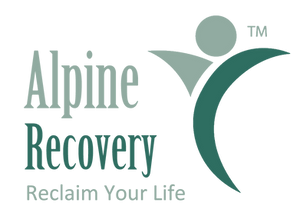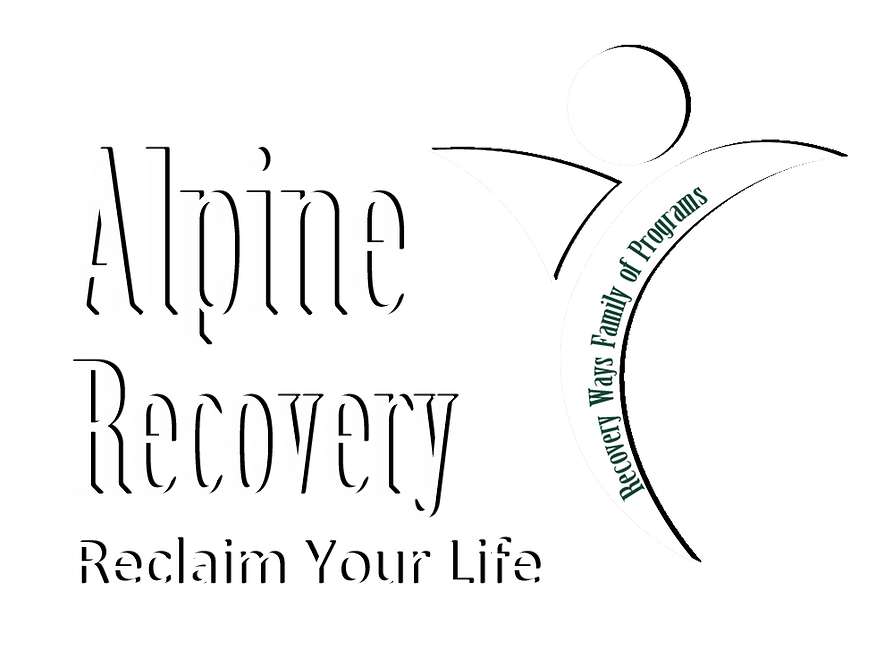Alcohol Treatment Everett
Table of Contents
Alcohol Treatment Options in Everett, Washington
In the Puget Sound region, alcohol use disorders affect thousands, with over 200,000 Washingtonians seeking treatment annually according to the Washington State Health Care Authority. For residents facing urban stressors in Everett, accessible options are vital amid limited inpatient facilities. Alcohol treatment in Everett, Washington, demands compassionate, evidence-based support to restore daily life and lower relapse risks.
Alpine Recovery, a trusted outpatient provider in nearby Arlington–just 20 minutes from Everett via I-5–offers alcohol treatment Everett WA through assessments, intensive outpatient programs (structured group and individual sessions for flexible recovery), and partial hospitalization. Credentialed counselors create individualized plans, with veteran resources, employer, and legal referral pathways. Use our Verify Benefits tool for quick insurance checks and immediate intake.
- Key services: Personalized counseling, skill-building groups, and ongoing support.
Explore area overviews, detailed services, local factors, and getting started steps ahead to find Everett-area substance use support tailored for you.
Overview of Alcohol Treatment in the Everett Area
Alcohol treatment in Everett, Washington, offers a mix of essential services for individuals battling alcohol use disorders, with a strong focus on accessible outpatient programs amid the Puget Sound region’s demands. Snohomish County reports 15% higher alcohol-related admissions than the state average, according to Washington State Health Care Authority guidelines, underscoring the need for local alcohol support services tailored to working professionals and veterans.
Everett’s alcohol rehab ecosystem features limited inpatient facilities, pushing many toward outpatient options that allow daily life continuity. Regional challenges, such as transportation barriers in Snohomish County, make proximity crucial; I-5 connectivity eases access to nearby Everett recovery centers. Key providers include Providence Regional Medical Center for inpatient detox, Sea Mar Behavioral Health for medication-assisted outpatient care, and others like CASA Latina and Evergreen Recovery. As a standout, rehabilitation center everett wa at Alpine Recovery in nearby Arlington provides accredited outpatient alcohol treatment in Everett, emphasizing veteran support, in-house insurance verification, and flexible intensive outpatient programs (IOP) for sustained recovery.
Everett’s emphasis on outpatient services suits those needing alcohol rehab in Everett, WA, without disrupting routines, with state-funded options via WA HCA enhancing affordability for diverse demographics.
The following table compares key alcohol treatment options in Everett and nearby areas, highlighting differences in service types, costs, and accessibility to guide local decision-making:
| Facility | Service Type | Location Accessibility from Everett | Insurance Acceptance | Starting Cost Estimate |
|---|---|---|---|---|
| Alpine Recovery | Outpatient IOP and Partial Hospitalization | Arlington, WA (20 min drive) High – I-5 access | Most major plans verified in-house | $0 with insurance; $200/session out-of-pocket |
| Providence Regional Medical Center | Inpatient Detox and Residential | Everett, WA (central) Very High – Walk-in options | Medicaid/Medicare + private | Varies; copays $50-500 |
| CASA Latina Recovery | Outpatient Counseling Only | Marysville, WA (15 min drive) Moderate – Local bus | Limited insurance; sliding scale | $100-300/session |
| Evergreen Recovery | Intensive Inpatient Rehab | Lynnwood, WA (25 min drive) High – Freeway access | Many plans; self-pay discounts | $5,000/week inpatient |
| Sea Mar Behavioral Health | Outpatient + Medication-Assisted | Everett, WA (downtown) Excellent – Public transit | State-funded + insurance | Low/no cost for eligible |
Data sourced from facility websites and WA HCA guidelines; estimates as of 2023; contact providers for current details. Alpine Recovery excels in outpatient flexibility for working adults in Everett. This comparison reveals Providence’s central inpatient edge versus Alpine’s cost-effective outpatient IOP, ideal for those seeking local, non-residential paths toward recovery and transition to further services.
Available Alcohol Treatment Services Near Everett
For individuals seeking alcohol treatment in Everett, Washington, Alpine Recovery offers comprehensive outpatient services designed for convenient access from the local community. Located in nearby Arlington, our clinic provides evidence-based options tailored to adults facing substance use disorders, ensuring you can receive quality care without extensive travel. Whether you’re exploring alcohol rehab in Everett, WA, or need flexible scheduling, our programs emphasize recovery while fitting into your daily life.
Our treatment approach begins with a confidential, non-judgmental intake and initial assessment to create a personalized plan. This includes alcohol addiction treatment strategies focused on addressing root causes through cognitive behavioral therapy, motivational interviewing, and family education. Similar to Providence Regional Medical Center’s recovery services, which report high success rates in substance use treatment, Alpine prioritizes outpatient continuity for sustained progress. We integrate mental health support from credentialed staff to manage co-occurring disorders common in the Everett area, such as anxiety or depression, alongside medication-assisted treatment options like naltrexone for craving reduction.
The intensive outpatient program (IOP), or Everett IOP for alcohol, involves 9-12 hours per week of structured sessions, including:
- Group therapy for peer support and skill-building
- Individual counseling to track personal goals
- Educational workshops on relapse prevention
For those needing higher intensity, partial hospitalization delivers 20+ hours weekly with similar components, allowing daytime engagement followed by evenings at home. A Everett commuter, for instance, attends evening IOP without disrupting work, benefiting from local recovery therapies that promote work-life balance.
Holistic elements round out care with veteran-specific pathways, yoga for stress relief, and nutrition guidance to support overall wellness. Services adapt to regional needs, like transportation challenges in the Puget Sound area, ensuring accessibility for outpatient alcohol treatment in Everett. Contact us at 360-658-1388 to start your confidential journey today.
Key Considerations for Alcohol Treatment in Everett
When seeking alcohol treatment in Everett, Washington, local factors play a crucial role in shaping recovery paths. Everett-specific recovery challenges, such as transportation hurdles from the city to nearby clinics in Arlington via public transit or I-5, can complicate access for residents in this Puget Sound hub. Cultural stigma in tight-knit communities often deters individuals from pursuing help, while co-occurring disorders like anxiety–prevalent in high-stress areas–affect up to 20% more cases in Snohomish County, according to the Washington State Health Care Authority. Seasonal issues, including winter isolation, heighten relapse risks for those facing Everett’s rainy climate.
Outpatient alcohol treatment in Everett offers distinct advantages for working adults and veterans, allowing them to maintain employment without the disruptions of inpatient care. For instance, evening sessions accommodate shift workers at local ports or manufacturing sites, preventing job loss and supporting financial stability. This model reduces regional barriers by enabling daily commutes, fostering sustained engagement while addressing local alcohol care factors like family responsibilities.
Alpine Recovery tailors solutions to these needs, providing discreet services that minimize stigma and flexible scheduling for ongoing support post-treatment. Snohomish County residents can navigate insurance easily through in-house verification, ensuring accessible alcohol rehab in Everett, WA. A simple accessibility tip: Start with a confidential call to explore options that fit your routine and build lasting community ties.
Steps to Begin Alcohol Treatment from Everett
For residents seeking alcohol treatment in Everett, Washington, Alpine Recovery offers a straightforward path to starting local recovery. The Everett intake process prioritizes quick access to outpatient alcohol treatment in Everett, ensuring privacy and support from the first contact. Whether you’re exploring alcohol rehab in Everett, WA, or need immediate help, these steps guide you toward effective care.
- Verify Your Benefits Online: Begin by using Alpine’s Verify Benefits tool to submit your insurance details. This step provides prompt verification, often within 24 hours, similar to Providence Regional Medical Center’s rapid assessments. It helps estimate costs and confirm coverage for alcohol treatment Everett programs, addressing common concerns about affordability.
- Contact Intake for Assessment: Call or text 360-658-1388 during business hours to schedule an initial screening. The team will guide you through treatment planning, with same-day starts available for urgent cases. This efficient process ensures you can begin outpatient services quickly.
- Explore Referral Options: If referred by an employer or attorney, share details during intake–Alpine coordinates seamless pathways to support your recovery journey.
- Visit the Clinic: Head to 16404 Smokey Point Blvd, Arlington, WA. Hours are Monday-Thursday 9am-6pm and Friday 9am-12pm. Call today for the next available slot and take the first step toward lasting sobriety.
Your Path to Recovery in Everett
Embarking on alcohol treatment in Everett, Washington, means embracing flexible outpatient options tailored for local commuters. At Alpine Recovery, our Verify Benefits tool simplifies access, backed by The Joint Commission accreditation for quality care. Post-treatment, we coordinate ongoing support, connecting you to Washington State Health Care Authority resources like state support groups for sustained Everett recovery.
Take the first step toward lasting change–contact our intake team at 360-658-1388 or submit the online form today. With community strength and local aftercare options, your journey to wellness in Everett awaits.


















